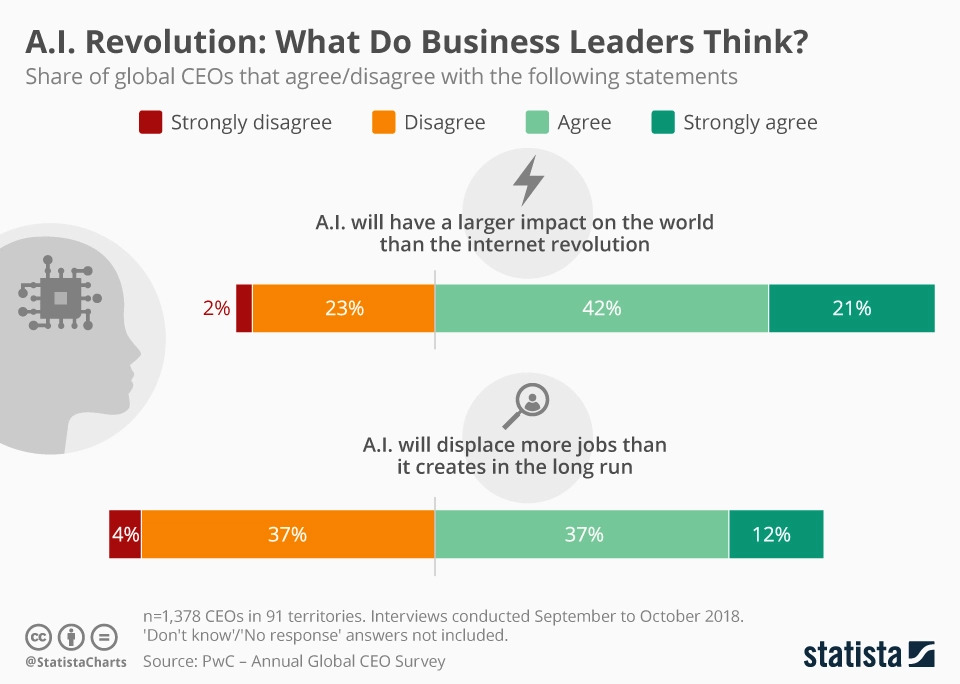Over the years, the advances in internet and its access, speech technology, website traffic, and limitations in the scope of human interactions with the clients outside working hours have created rifts between the companies’ abilities to engage their clients effectively. But all that is poised to change with the recent advancements in Machine Learning (ML) and Artificial Intelligence (AI).
AI can collect relevant data to identify new client acquisition segments. This will help in creating more streamlined marketing strategies and analytics network. These benefits mean that companies can scale personalization and precision in unprecedented ways.
Several tools that focus on client experience and analysis help marketers in visualizing the customer lifecycle. That helps in a 360-degree view of customer acquisition and where those customers might be experiencing friction. This will enable companies to optimize customer engagement and improve their conversation rates.
In fact, the impact of AI is predicted to be so profound, that McKinsey, in their study titled, ‘Artificial Intelligence: The Next Digital Frontier?’ urged companies to capitalize on the emerging trends in AI. TechNavio predicts that AI will grow by a compounded rate of 50% in just the US alone.

Given these possible disruptions, it will be interesting to see how AI will shape the digital marketing world. For now, some of the emerging trends that will only intensify in the coming years are:
Chatbots and Chat Assistants
Companies realize that the best way to engage with customers is to provide someone 24×7 to answer queries on their websites. However, this is not humanly cost-efficient for most businesses. That is why they turn to chatbots and chat assistants. Google has Google Assistant, and Apple has Siri. Both these assistants are powered by AI/ML to improve user experience.
According to a Gartner study, by the end of 2021, about 85% of all customer interactions with a website are poised to happen through a chatbot. As AI improves, the quality of the chatbot also improves. Eventually, we can easily foresee a future where customer interactions with the chatbots are indistinguishable from human interactions.
Such interactions will improve consumer engagement and give marketers valuable insights into the footfalls and user intent.
Predictive Marketing
Predictive marketing enables marketers to identify what strategies to use in specific scenarios. This process can be made simpler with the help of AI, which will process voluminous data to achieve insights that human computation can’t, to identify the ideal marketing strategy. These insights will help in improving customer engagement, lowering marketing overheads, improving lead conversions, and increasing overall revenue.
Predictive marketing isn’t exactly a new business practice. But with AI, a new level of personalization can be achieved. An Everstring study titled, ‘The Study of AI in B2B Marketing,’ states that 71% of the studied marketers believe that personalization powered by AI in predictive marketing can be critical to their business’ success.
This data-driven personalization can help businesses cater their products based on
- How customers make their purchases
- Historical trends on the time and place of purchase
- Volume, amount, and frequency of spending
Personalized Ads
In the age of Google and Facebook duopoly over advertisements, marketers, particularly digital marketers, are hard-pressed to compete with several similar businesses for limited space. To come out a survivor, businesses have to personalize their ads based on demographics and user preferences.
Facebook audience marketplace and Google already use AI/ML to identify user preferences and tastes based on items like their search history, their purchase history, interests, demographics, and the pages they’ve visited or lingered on the most. This helps marketers save on their marketing cost because they can target the right consumer with their budget. This will reduce the number of duds and increases ROAS.

With the right information, AI/ML algorithms can display the right ads to the right people at the right time. Even when digital marketers are not using Facebook and Google for advertisements, they can strategically plan their partnerships with influencers or bloggers based on consumer patterns.
A/B Testing
A/B testing is also called Split Bucket Testing. It involves identifying the version of websites consumers prefer better. A/B testing identifies the version of websites that gives businesses the most leads and conversions. As digital marketers, this will enable better placements on the website to attract and retain customers.
Algorithms powered by AI can test multiple hypotheses by making small changes to the website until the optimum website elements are put in place. What is amazing about using AI to do this task is that customers don’t really realize that certain elements of a website are different from their last visit. Human marketers can’t process the information that minuscule changes produce. But an AI-algorithm has the capability to track changes and consumer behaviour after the changes have been executed.
Conclusion
Despite being a decade-old invention, AI’s applications in different sectors are still in their nascent stage. As time passes, marketers will unlock the benefits that AI presents to the field of digital marketing, particularly in lead generation, web development, and accelerating in-website voice search features. With more data generated, AI’s prediction powers will increase, thus translating into better returns for the marketers and their clients.
Not only in Digital Marketing, but AI is also impacting online eCommerce businesses. Due to Covid customers are shopping online & AI-powered chatbots handling any queries. AI now helps easy checkout options with voice recognition technology.
Giving reminders of bill payments & order tracking histories.